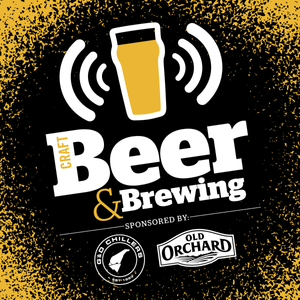
Episode 13: Mimi Casteel (Hope Well Vineyard) on Tilling
01/31/21 • 58 min
We conclude Regenuary with our interview with Mimi Casteel. Mimi is one of the preeminent voices for regenerative agriculture and no till, which she practices at Hope Well Vineyard in Eola-Amity Hills, Oregon.
Mimi explains the advantages and disadvantages of tilling, one of which is the release of carbon into the atmosphere, contributing to climate change. She addresses what she believes are necessary changes to farming subsidies and viticultural regulations if we are to achieve a sustainable future.
Instagram: @mimicasteel
Website: hopewellwine.com
Photo by: Aubrie Legault
We conclude Regenuary with our interview with Mimi Casteel. Mimi is one of the preeminent voices for regenerative agriculture and no till, which she practices at Hope Well Vineyard in Eola-Amity Hills, Oregon.
Mimi explains the advantages and disadvantages of tilling, one of which is the release of carbon into the atmosphere, contributing to climate change. She addresses what she believes are necessary changes to farming subsidies and viticultural regulations if we are to achieve a sustainable future.
Instagram: @mimicasteel
Website: hopewellwine.com
Photo by: Aubrie Legault
Previous Episode

Episode 12: Nigel Greening from Felton Road on the Role of Animals in the Vines
We continue our celebration of Regenuary with our interview with Nigel Greening, proprietor of Felton Road in Central Otago, New Zealand. Nigel discusses the role of animals in the vines and the winery’s ecosystem.
Nigel explains the difference between sheep (which are grazers) versus goats (which are browsers) in managing their wild rose population. While some believe the best way to restore land is by removing grazing animals, Nigel believes the contrary--their highland cattle has helped restore soil fertility and encourage grass growth. He also shares their experience with helping raise New Zealand endangered native falcons and managing birds, rabbits and other creatures in the vines.
Photo: The Family of Twelve
Next Episode

Episode 14: Elaine Chukan Brown on Indigenous Representation in the Wine Industry
Today, I chat with Elaine Chukan Brown about Indigenous representation in the wine industry.
Elaine is an Alaskan Native, from the Inupiaq-Unangan-Sugpiaq tribes. She started fishing commercially when she was nine years old and worked in various industries before starting her wine career. Elaine is a wine educator and writer. She is the American wine specialist at JancisRobinson.com and has contributed to the 4th edition of the Oxford Companion to Wine and the 8th edition of the World Atlas of Wine. She was voted IWSC Wine Communicator of the Year in 2020.
We discuss the history of Indigenous Americans and alcohol, misguided stereotypes, cultural appropriation, and what it means to be an Indigenous-owned winery.
Photo by Elaine, with her grandmother, an Alaskan native from the Inupiaq-Yupik tribes.
Instagram: @hawk_wakawaka
If you like this episode you’ll love

Food for Thought: The Joys and Benefits of Living Vegan

Cöld Brüe Pödcast - Craft Beer Reviews & News

The Interesting Narrative of the Life of Olaudah Equiano, Or Gustavus Vassa, The African by Olaudah Equiano

Craft Beer & Brewing Magazine Podcast

The Women's Eye with Stacey Gualandi | Women Leaders, Entrepreneurs, Authors and Global Changemakers
Episode Comments
Generate a badge
Get a badge for your website that links back to this episode
<a href="https://goodpods.com/podcasts/ungrafted-293197/episode-13-mimi-casteel-hope-well-vineyard-on-tilling-38353944"> <img src="https://storage.googleapis.com/goodpods-images-bucket/badges/generic-badge-1.svg" alt="listen to episode 13: mimi casteel (hope well vineyard) on tilling on goodpods" style="width: 225px" /> </a>
Copy